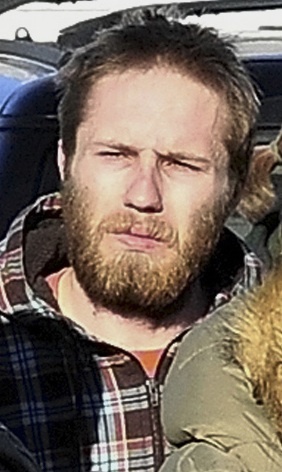WATERVILLE – The father of Ayla Reynolds revealed Friday that he took a polygraph exam soon after she disappeared, but neither he nor police will say how he did.
It was four weeks ago today that Justin DiPietro reported the toddler missing from their home on Violette Avenue.
“I asked for a polygraph on day one,” he said Friday in an interview with the Morning Sentinel. “I’ve taken one, and the results, I was never allowed to see them. It’s something you’re going to have to ask law enforcement about.”
In fact, DiPietro was told how he did on the test, said Steve McCausland, spokesman for the state Department of Public Safety. McCausland said he was baffled by DiPietro’s statement.
“He knows how he did, because we told him,” he said. “To say that he didn’t know is just not true.”
McCausland would not say what the results were.
The story of the missing 21-month-old girl has been news nationwide. Local, state and federal authorities have investigated her disappearance and searched for the girl throughout the Waterville area.
On Wednesday, as state divers searched in the Kennebec River and Messalonskee Stream, McCausland told reporters, “We’ve ruled out no scenarios, and ruled out no one” in connection with Ayla’s disappearance.
DiPietro, 24, said Friday that he took one polygraph exam, administered by a single detective. He wouldn’t say what he was asked, but briefly described the equipment.
“You’ve got things on your fingers, you’ve got things across your chest,” he said, and he sat on a seat pad that was part of the polygraph equipment.
He said, “I told the truth and that’s that.”
When asked if police told him the results, DiPietro said, “I didn’t physically see the results.”
He said, “I wanted to see the results myself. They’re not letting me see them. Why don’t they let the public see them?”
McCausland said polygraph results are difficult to read without training.
“It’s lines on a paper, similar to an electrocardiogram report,” he said. “The polygraph operator knows the results, but there’s no transcript or written text that goes with it.”
McCausland said polygraph tests are used for investigative purposes and pre-employment screening for Maine law enforcement officers. He said the results cannot be used as evidence in court cases.
Asked if members of his family have taken polygraph exams, DiPietro said he isn’t sure.
“I just know about myself,” he said. “Anything (police have) asked us to do, we’ve cooperated. We’ve made ourselves available to them. … There’s nothing to hide here.”
Also Friday, DiPietro said there were three children and three adults in his mother’s home on Violette Avenue the night before Ayla was reported missing.
DiPietro said he and Ayla; his sister Elisha, 23, and her young daughter; and his girlfriend, Courtney Roberts, 24, and her young son, were all in the home. The Robertses are Portland residents.
McCausland said Wednesday that there were three adults and two children in the home. On Friday, he said that was a mistake. “There were two children in addition to Ayla,” he said.
DiPietro also clarified a comment he made Wednesday to the Morning Sentinel regarding the search of the Kennebec River and Messalonskee Stream. He said investigators told him Tuesday, “Don’t be alarmed.”
On Friday, he said they told him: “Don’t be alarmed when you see the searches going on down there, when you see law enforcement out there. … Obviously, I was alarmed that they were doing a river search. I mean, when you think about the possibility that your child could be down there ….”
A $30,000 reward has been offered for information that leads investigators to Ayla. Maine State Police are asking that tips be directed to them at 624-7076.
Morning Sentinel Staff Writer Ben McCanna can be contacted at 861-9239 or at:
bmccanna@centralmaine.com
Send questions/comments to the editors.




Comments are no longer available on this story